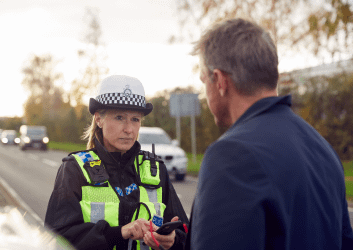
January 25, 2012
Being stopped for DUI in California is a frightening and often a confusing experience. If you drink and you own a car, you should take precautions to avoid driving under the influence. If you have been drinking, it can be difficult to tell whether you have sobered up enough to drive.
As soon as the police tell you that they suspect you of driving under the influence, tell the police that you want to cooperate and that you want to talk to an attorney before you answer any of their questions. Provide the following four things: license, registration, proof of insurance, and a blood test (unless you have any drugs in your system).
When you get a California driving license you consent in advance to taking a blood or breath test if you are stopped on suspicion for driving under the influence. If you request the blood test, in most cases it takes longer to submit to a blood test than a breath test because a blood test requires a licensed phlebotomist, who is usually not immediately available, whereas and evidentiary breath test can be administered by a police officer. During this delay, which can take between a half an hour to an hour, your Blood Alcohol Level will drop. For instance, a person who takes a breath test immediately after the arrest that shows a .10, had she requested a blood test may have gotten a reading of .07 due to the delay.
You need to contact an skilled DUI defense attorney immediately for three reasons: (1) to be sure that you have one available for the court date, (2) so that the attorney can request the police report and conduct any necessary investigation, and (3) so that the attorney can represent you at the DMV hearing.
Anything you say to anyone other than an attorney can be used as an admission, and if the prosecutor finds out about what you have said to anyone (even a friend), those statements can be used against you in court.
As soon as you can, make notes about what happened: what you drank and where, names of witnesses, the order of events, anything you ate and medications you were taking, any statements you made to the police officer, and anything unusual about the event. Your notes can be helpful in refreshing your recollection when you meet with your defense attorney to discuss your case.
DUI defense attorney Thomas Greenberg has worked on thousands of DUI cases, is a member of the California DUI Attorneys Association, and is often consulted by other criminal attorneys regarding DUI cases and defenses. Contact him at (650) 242-0021 to begin the defense process for your DUI.
Leave a Reply
Your email address will not be published. Required fields are marked *